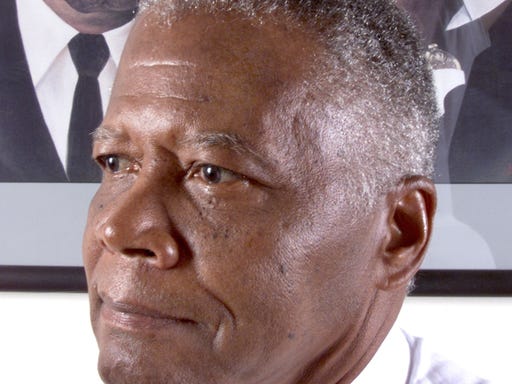The Smart and Safe Arizona Act filed with the state in August leaves out key industry players and prioritizes the interests of the companies that already control the marijuana market, according to Mason Cave, an advisory board member with the new Arizona Cannabis Chamber of Commerce.
Formed in July, the group consists of growers, manufacturers, dispensary owners, bankers, recommendation-writing doctors, and others who want to see recreational marijuana pass in 2020. But they have their own ideas about the best way to make that happen.
Cave, a consultant for the state’s marijuana industry who also served as CEO of his own grow operation, said the chamber’s vision would be a measure that opens up more opportunities to people hoping to enter the industry, instead of putting dispensaries first.
“The initiative is really the big companies’ initiative,” Cave said. “I’m for smarter, wiser legislation over those guys’ pockets.”
The fledgling group has about 20 members so far, Cave said, but it’s actively recruiting more. Board members include cannabis lawyer Janet Jackim, cryptocurrency firm boss Ryan Taylor, and cannabis entrepreneur Susan Hwang, who is also the market leader for Women Grow Phoenix.
The chamber announced its opposition to the measure and its reasons why in a launch event Monday afternoon.
The first problem the chamber has with the Smart and Safe Arizona Act, Cave said, is that it’s written by, primarily funded by, and tailored to the needs of existing dispensary owners who want to retain control over the state’s marijuana market.
As written now, the initiative would offer a few dozen new marijuana licenses for “social equity” purposes and for rural areas under-served by the medical industry, but would otherwise limit recreational licenses for now mostly to the companies that already have dispensaries in Arizona.
“They’re writing their own laws,” Cave said. “Imagine Johnson & Johnson doing that.”
A second problem issue the chamber has identified, Cave said, is the 16 percent tax the Smart and Safe Act proposes levying on marijuana products.
In California, some blame the state’s high recreational marijuana taxes for the drug’s exploding black market, which has grown larger in California than in any other state.
“We would not want to see that here in Arizona,” Cave said.
He said the chamber is working on evaluating what a reasonable lower tax rate might be, and considering a proposal that would waive an excise tax on recreational marijuana for medical patients who have been funding the industry so far.
The current initiative gives the Arizona Department of Health Services the responsibility for regulating recreational marijuana and enforcing the law if it’s passed. The agency has been the main regulatory body for the state’s medical marijuana industry so far.
But for recreational sales, the chamber thinks that’s the wrong approach. Instead, Cave said, his group thinks Arizona’s liquor control board is better equipped to regulate the recreational industry.
“They’re designed for enforcement of rules and making sure underage consumption doesn’t happen,” Cave said. “They’re just formed more directly for what we’re trying to accomplish.”
Also, Cave said, the Smart and Safe Arizona Act as written doesn’t stop a dispensary from owning its own testing facility. The chamber will squash that potential conflict of interest in its proposal to the state Legislature, he said.
“They shouldn’t be testing their own product, that’s for sure,” Cave said.
Despite those concerns, however, the new testing law requires state oversight of all marijuana testing starting in November 2020.
Meanwhile, Stacy Pearson, the spokesperson for the Smart and Safe Arizona Act and a senior vice president for the public relations firm Strategies 360, said she’s “sincerely not concerned” about the chamber’s efforts or other marijuana-related initiatives hoping to make the ballot in 2020.
Still, Pearson countered Cave’s arguments with several points of her own. For instance, the existing initiative was conservative in setting the tax rate, she said, and “economists would argue that it could be even higher and not impact an illicit market.”
Also, polling indicated that voters didn’t want more licenses available, she said. And as Arizona grows and more pharmacies open, the initiative allows for the state to issue more licenses.
Finally, Pearson argued that it wouldn’t make sense to bring in a second regulatory body for marijuana, since the medical marijuana industry will continue to be regulated by the ADHS either way.
“If they want a double bureaucracy, it’s a good option,” she said.
The chamber is already canvassing to figure out all of the issues patients and others have with the initiative.
Next, Cave said, the chamber will work with state legislators and others to write new referendum language within the next 30 to 45 days. That language will be submitted to the Legislature once its 2020 session begins in January. If the House and Senate both approve the referendum with a 50 percent vote, it’ll appear on the ballot next fall.
Some in the marijuana industry fear the chamber’s proposal will split the vote if it makes the ballot, resulting in adult-use marijuana not passing at all in 2020. That would be a major setback for the more than 10,000 people arrested every year in Arizona on marijuana charges, many of whose records would be expunged under the initiative.
There’s also concern that some of the legislators who support the referendum could have ulterior motives. Mikel Weisser, executive director of Arizona’s NORML chapter, says he’s spoken with lawmakers who want to “throw a monkey wrench into the process.”
“In my talking with Republican legislators, they like the idea of a referendum because it’ll scuttle legalization,” Weisser said.
But the chamber’s board says it’s confident it can win over legislators and voters in 2020. Cave pointed out a recent election in Missouri, where three competing medical marijuana initiatives in 2018 resulted in one of them passing.
He said if it does end up splitting the vote, that’s better than the initiative passing unchallenged.
“Passing bad legislation for the sake of passing bad legislation is bad policy,” he said.
“I think diversity is good and more options are good,” board member Susan Hwang added. “One is a closed market. This is an open market.”
(UPDATE: This article has been updated from the original with more quotes from the event.)




